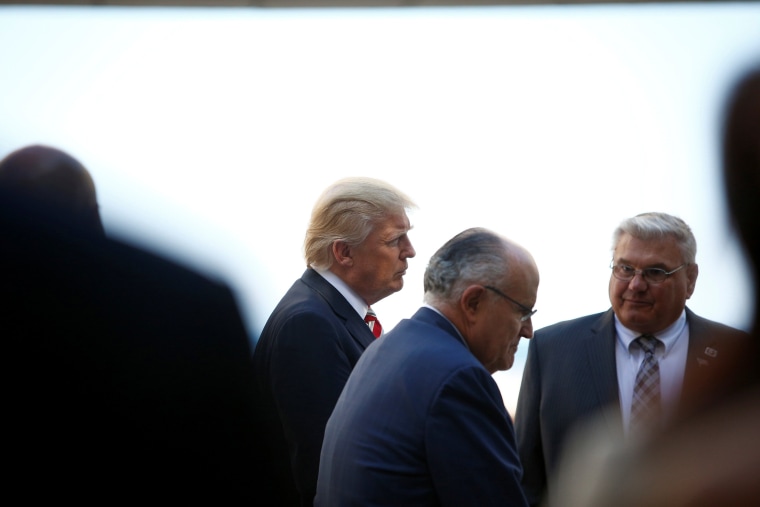Republican presidential candidate Donald Trump received his first intelligence briefing in New York Wednesday — a standard procedure for major party presidential nominees.
The briefing, which lasted about two hours, was designed to give him a slightly more detailed picture of worldwide threats than the one U.S. analysts regularly present in public; it will not reveal sensitive intelligence operations, senior U.S. officials tell NBC News.
Candidate briefings are “not at the level of the PDB,” the President’s Daily Brief, which is akin to a daily newspaper of secrets, one official said. They more closely resemble the broad and descriptive testimony given by senior officials to Congress each year at public hearings on global threats.
The briefing Trump receives will describe how U.S. intelligence agencies see a variety of global issues, but will not describe espionage methods, covert operations or nuclear secrets, officials said.
“Candidates are advised of the classified nature of the material, and that operational and policy matters will not addressed," one official said.
Much more detailed, more sensitive briefings are given to the president-elect, after the November vote.
Typically there are only one or two candidate briefings and each candidate gets the same information. However, since Hillary Clinton has been privy to the government’s deepest intelligence secrets as secretary of state, she may ask informed questions that allow her to glean more information.
The candidates are not required to hold security clearances to get the briefing, but any aide in the room with them needs one, which explains why Trump is bringing retired Gen. Mike Flynn, the former head of the Defense Intelligence Agency.
Candidate briefings began in 1952 under President Harry Truman, who offered the service to Republican candidate Dwight D. Eisenhower. Truman, who felt unprepared when he entered office in the middle of a war, believed no future president should be ignorant of intelligence matters.
In the years since, George McGovern in 1972 and Walter Mondale in 1984 did not receive the briefing, experts say. McGovern and the briefers had scheduling conflicts that couldn't be resolved and Mondale turned it down because he didn't think he was going to need it because he didn't think he was going to win.
For the first 52 years, the CIA gave the briefings, but since the 2004 election, the Office of the Director of National Intelligence has handled the task. The sessions include a printed briefing book for the candidate.


